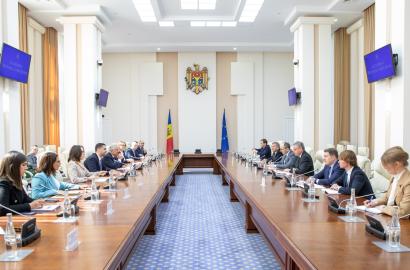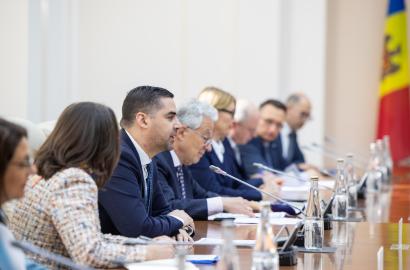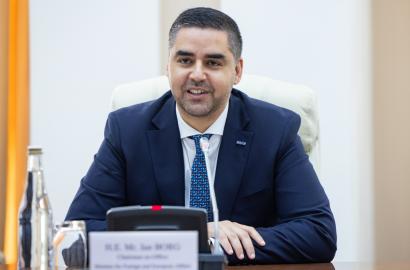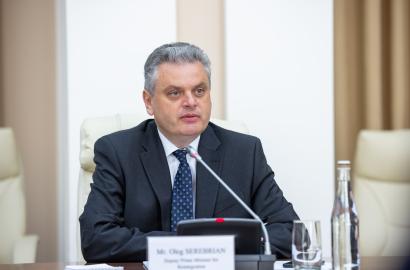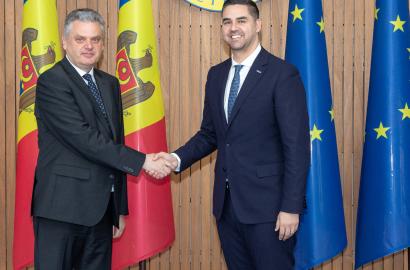Deputy Prime Minister Oleg Serebrian in dialogue with the OSCE Chair-in-Office, Minister for Foreign and European Affairs and Trade of Malta Ian Borg
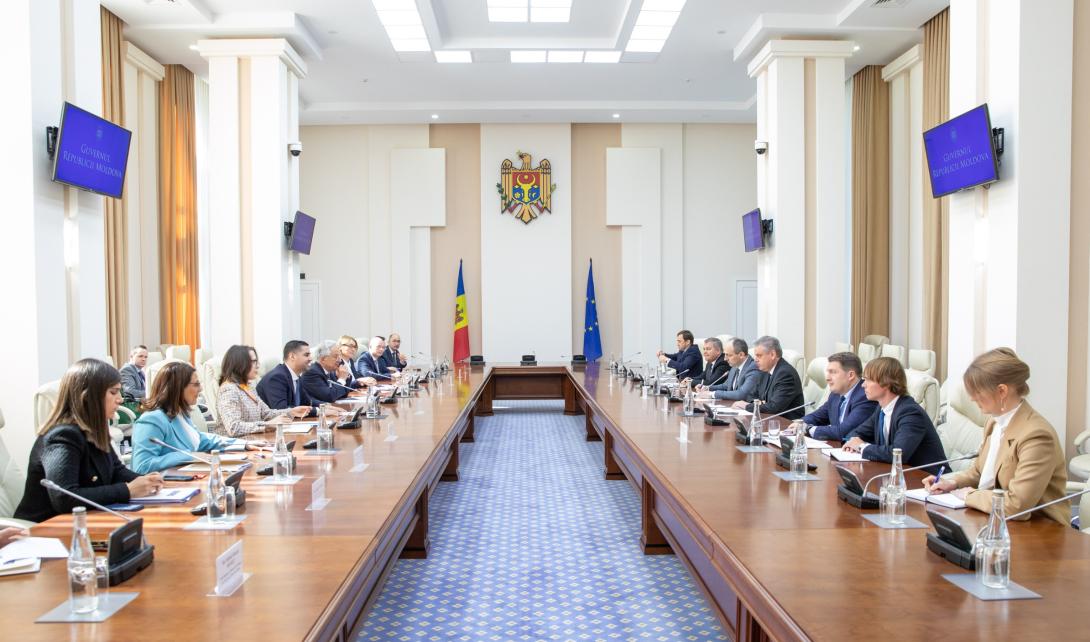
On April 12, 2024, Deputy Prime Minister for Reintegration Oleg Serebrian held a meeting with the Chairman-in-Office of the Organization for Security and Cooperation in Europe (OSCE), Minister for Foreign and European Affairs and Trade of Malta Ian Borg, accompanied by the Special Representative of the OSCE Chairman-in-Office for the transnistrian settlement process, Thomas Mayr-Harting, and the Head of the OSCE Mission to the Republic of Moldova, Kelly Keiderling.
Deputy Prime Minister Oleg Serebrian expressed appreciation to the OSCE for facilitating the transnistrian settlement process through peaceful means and negotiations, respecting the sovereignty and territorial integrity of the Republic of Moldova. He emphasized that amid the aggression of the Russian Federation against Ukraine, the main common priorities remain maintaining regional security and stability.
It was reiterated that the „5+2” negotiation format is not functional, and also goes beyond the current realities, with an emphasis on the fact that the dialogue is supported on platforms of interaction between political representatives and sectoral working groups with the assistance of the OSCE Mission to Moldova.
In the context of obtaining candidate country status for European Union (EU) accession and deepening relations with the EU, it was specified that these processes encourage the country's reintegration policies and the transnistrian settlement process. In turn, more active dynamics in the Transnistrian settlement process will be achieved after the implementation of the goal of demilitarization of the Transnistrian region and the unconditional withdrawal of illegally stationed troops and ammunition from the territory of the Republic of Moldova.
Special attention was given to the alarming situation regarding the violation of the inalienable rights of individuals in the Transnistrian region, which continues to deteriorate due to persecutions and abuses by Tiraspol in multiple individual cases (Malîșev, Dudnic, Dimov, Menzarari, Pleșcanov, Ermurachi, and others). The health condition of many illegally detained individuals is difficult, and in some cases, even critical.
Deputy Prime Minister Oleg Serebrian expressed concerns about the inconsistent and politicized positions of Tiraspol, particularly regarding the issue of farmers in the Dubăsari district and the situation of schools teaching in Romanian in the Transnistrian region. Since 2024, there have been new unilateral actions undertaken by Tiraspol, and the issue of providing proper premises for educational institutions remains also unclear.
As for the amendments to the Penal Code of the Republic of Moldova regarding the criminalization of separatism, it was emphasized that these provisions do not affect the negotiation process and the free movement of residents from the Transnistrian region. However, serious attention must be paid to Tiraspol's so-called strategy to combat alleged extremist actions, under which multiple abuses, persecutions, and violations of fundamental human rights occur.
Regarding the new Customs Code of the Republic of Moldova implemented since January 1, 2024, it was stressed that it is harmonized with EU legislation and provides opportunities for economic activities for entrepreneurs on both banks within a single customs space, while adhering to the principles of fair competition and non-discrimination. This is within the framework of trade and economic preferences provided by the EU and international treaties to which the Republic of Moldova is a party.
Efforts will be made to ensure the functionality of vehicle registration points in Tiraspol and Râbnița, to bring the activities of companies in the region in line with national regulatory frameworks, and to address pressing issues faced by residents on both banks of the Nistru River.
Along with cooperation within the framework of the OSCE platform, the officials expressed full openness to the development of a productive bilateral partnership in the context of the European integration process of the Republic of Moldova.
